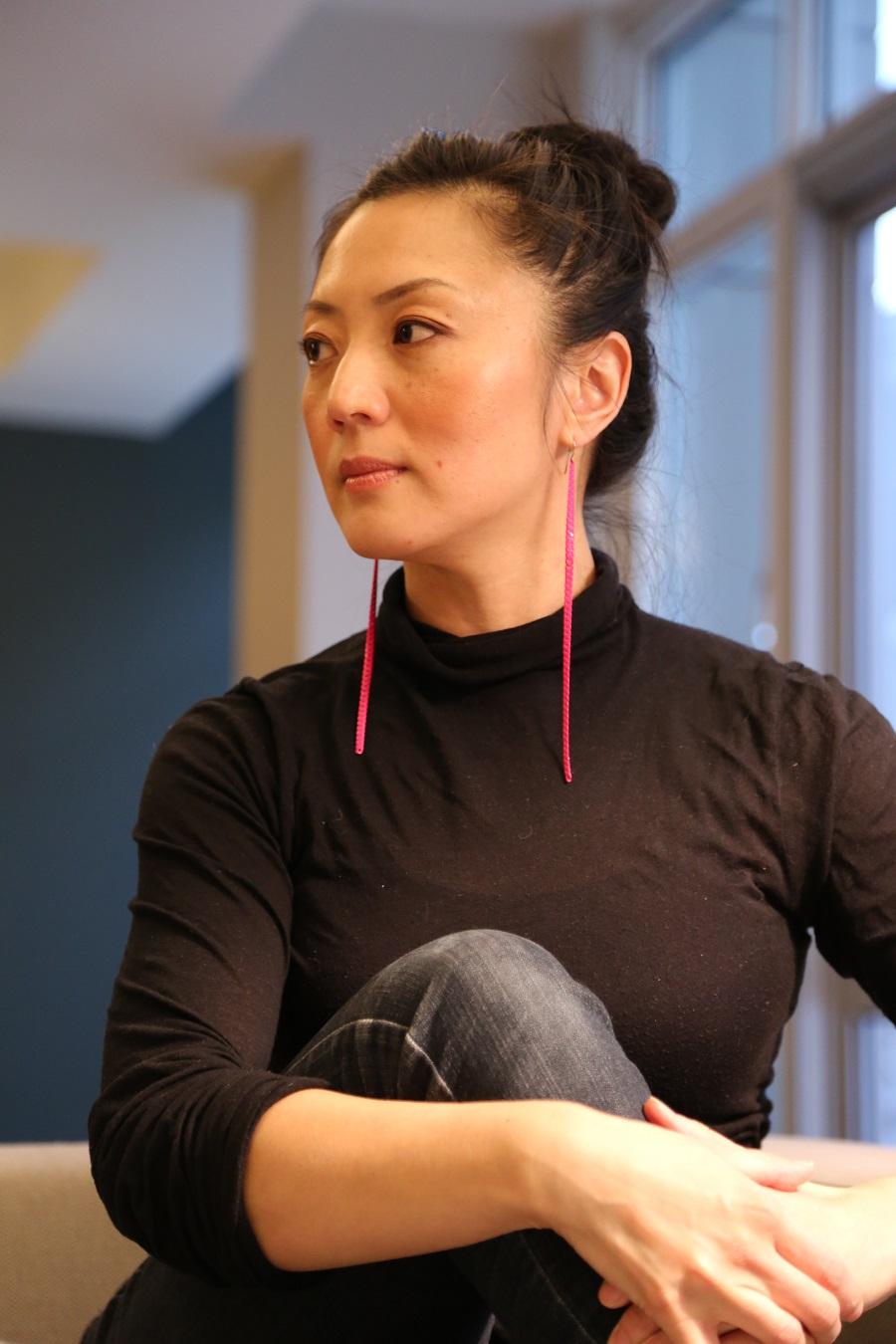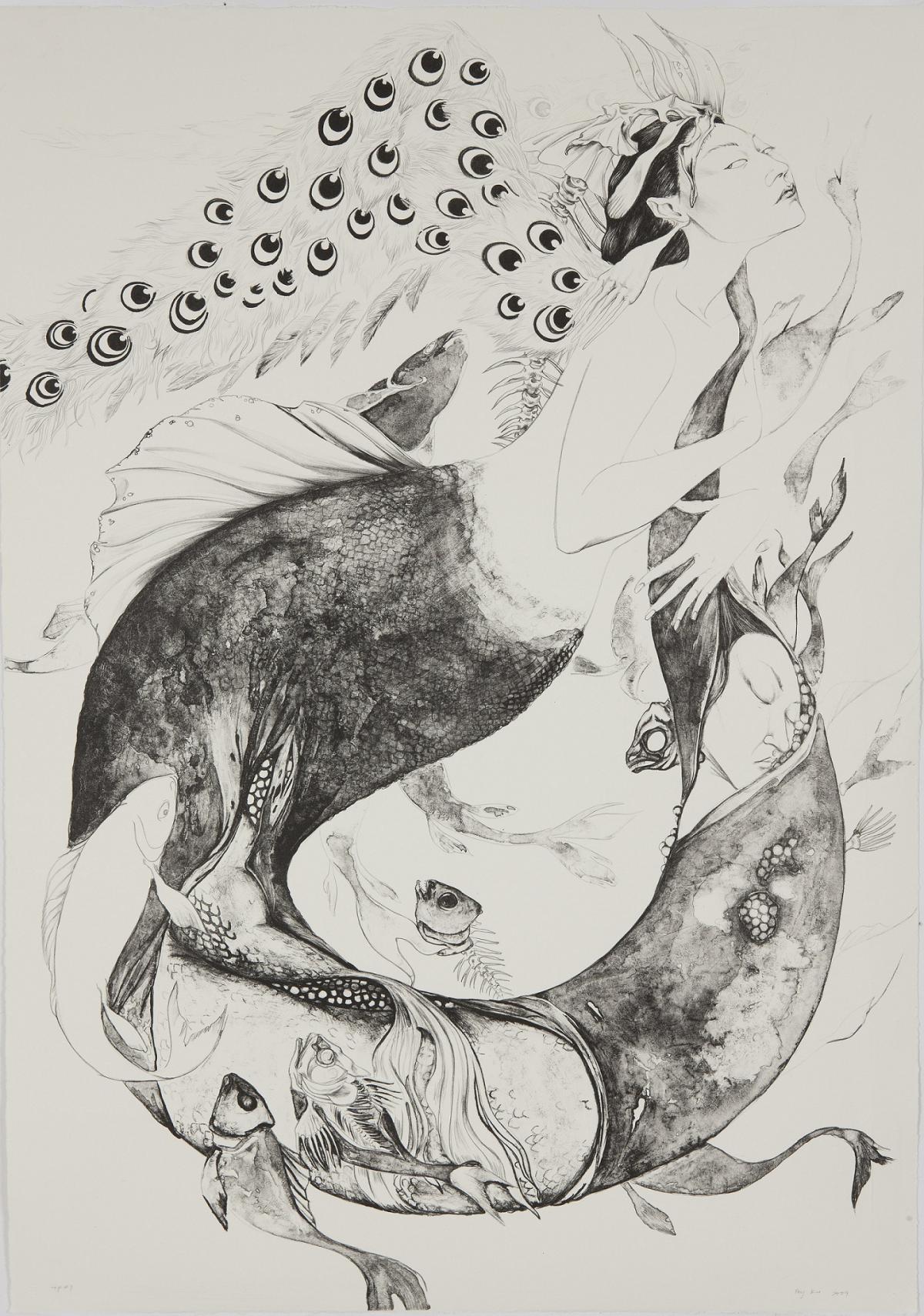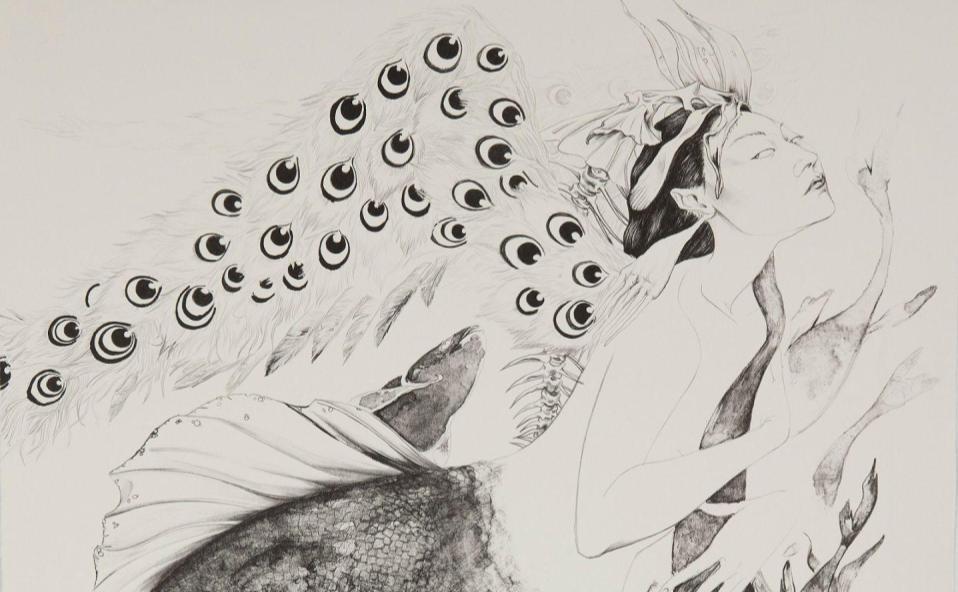
Fay Ku
The Academy Art Museum will host Fay Ku, a Taiwanese-born Brooklyn-based artist at its Kittredge-Wilson lecturer on Thursday, April 21 at 6 p.m.
Ku’s surreal poetic works reference myths, fairytales, and cultural histories. With meticulous detail and impeccable draftsmanship, she creates fantastical worlds. The Museum recently added Ku’s lithograph, Sea Change, to its collection.
“My parents were kind of double immigrants. My father was born in China and my mom was born in Taiwan, where I was also born. My dad came here first for graduate school and a year later my mother joined him. A year after that, I joined them first in Oklahoma and then we moved to Texas. Later, while living in Colorado and Maryland, I remember we were probably the only family that looked like us. It wasn’t until we moved outside of the DC metro area where there was more diversity,” Ku states.
Ku’s father, an amateur historian, spoke Chinese Mandarin in the house. He told her mysterious stories about the emperors and how they lost their empires and things about the cultural revolution in China. She recalls, “I sometimes wondered if he made them up. So, these were my fairy tale stories and because there were no books, I had to form these images in my head.”
“I found my subject matter partly because of my background. It took me a long time to understand and accept my cultural heritage was a huge part of who I am. I really had to try and figure out the world for myself and it was super confusing. In fact, it’s probably responsible for me being an artist in the first place. If I hadn’t been an immigrant and if I hadn’t come to this country, I would be probably a well-adjusted graphic designer back in Taiwan,” she quips.

Ku will discuss her lithograph, Sea Change, which the Museum recently acquired for its collection.
After struggling with painting in graduate school, she started drawing again. She recalls, “It just flew out of me and I didn’t take it seriously. And then I saw people’s positive responses to my work and I said to them, ‘What are you talking about? It’s just drawing.’ My work looked exactly like the way I used to draw – not different from what I did as a child. I just lost myself in the middle.“
With her Chinese and Taiwanese heritage, her family identifies with animal signs. In fifth grade, she discovered Greek mythology and really loved it because people are constantly changing from one thing to another. Both influences carried over to her art as an adult. She usually creates single protagonists, often girls and sometimes animals. And the figures exist in a vacuum, even when there is some element of background or environmental setting.
“I aim for the universality in my characters – my work is figurative and representational. There is a whole range of human behavior and then the characters are just sort of avatars – players in this human drama and the human drama can happen at any time,” she adds.
Today, Ku predominantly creates works on paper, like drawings. In her piece, Sea Change, recently acquired for the Academy Art Museum’s collection, she adds, “Certain imagery can change through the years and take on different significance and meaning. It’s more like our personal symbols – using animals as motifs and how those meanings change as one grows.”
“I’m a natural drawer. I don’t know why I fought against it. Like, I don’t like the woods – there’s too much stuff in the way. I like the desert – graphic and clear. I don’t like symphonies. I like etudes. I like things that you can see right away, that are legible,” she explains.
Ku is the recipient of a 2007 Louis Comfort Tiffany Grant and the 2009 New York Foundation for the Arts fellowship grant. She has exhibited extensively, including in solo exhibitions at the Honolulu Museum of Art, New Britain Museum of American Art, and the Snite Museum of Art. She received her MFA from Pratt Institute and has participated in several residencies at art institutions, including the Bemis Center for Contemporary Art, Lower East Side Printshop, and the Tamarind Institute.
The lecture begins at 6 p.m. and is FREE. Reservations are required. The lecture is generously supported by Paul Wilson. For further information, visit academyartmuseum.org or call 410-822-2787.



Write a Letter to the Editor on this Article
We encourage readers to offer their point of view on this article by submitting the following form. Editing is sometimes necessary and is done at the discretion of the editorial staff.